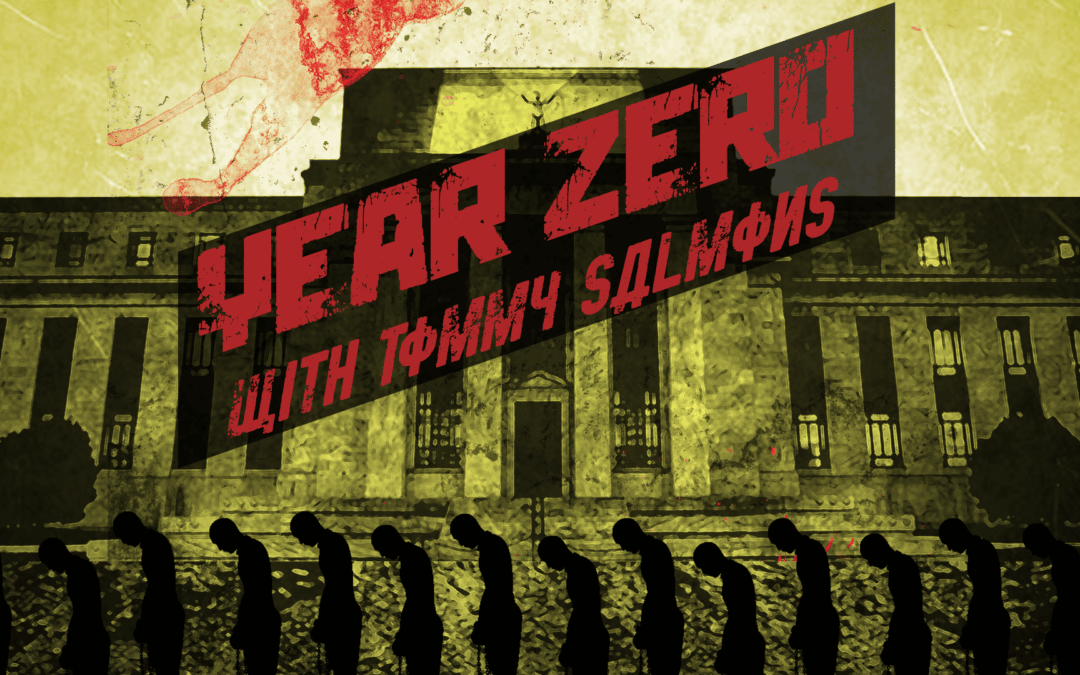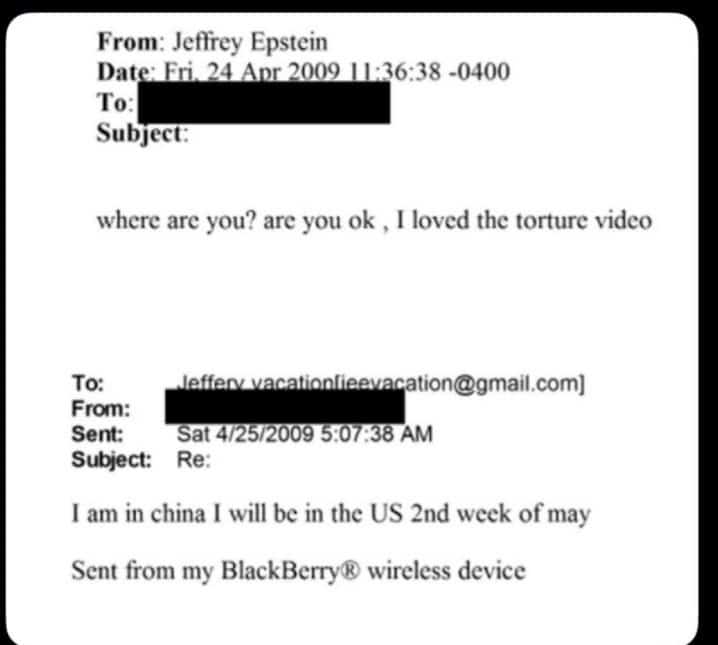Continue reading We
Podcast: Play in new window | Download

Continue reading We
Podcast: Play in new window | Download

“Down this road on a summer day in 1944, the soldiers came. Nobody lives here now. They stayed only a few hours. When they had gone, a community, which had lived for a thousand years, was dead. This is Oradour-sur-Glane, in France. The day the soldiers came, the people were gathered together. The men were taken to garages and barns, the women and children were led down this road, and they were driven into this church. Here, they heard the firing as their men were shot. Then they were killed too. A few weeks later, many of those who had done the killing were themselves dead, in battle. They never rebuilt Oradour. Its ruins are a memorial. Its martyrdom stands for thousands upon thousands of other martyrdoms in Poland, in Russia, in Burma, China, in a world at war.”
I was a child when I heard the opening narration to the Thames Television documentary series, The World At War. Narrated by Lawrence Olivier, the series is a well researched compilation of then, never seen footage, graphics and interviews with survivors of the war. The common civilian, soldier up to politicians and military commanders, provided additional commentary, offering perspectives of civility from a period of anything other. As Olivier introduces us to the coming series, he speaks with heavy regard for the subject matter, the humanity of the content. The dead, women, children, men are all individuals, not mere statistics. In 1973, when the first episode aired it was done as a chilling reminder of war’s brutal indifference to the individual, to love and fear. War is the destroyer of families and life.
The above image is of Rafah, it existed for over three thousand years and now it is reduced to rubble. The soldiers came, few live there now. The soldiers with artillery, drones, missiles and bullets killed and destroyed families and life. Refugees passed through, nowhere else to go. Among the debris, people hide and raise tents. Sometimes the bombs or missiles don’t find them. Other times they are not so lucky.
After this current genocide, when the people who once lived there are all dead or placed in camps, unlike Oradour, it will be rebuilt. It’s unlikely the conquerors will leave remnants to remember. The shame will be pushed beneath concrete and lay underneath hebel and veneers. Civilisation is the gentrification of truth. The ugly blandness of modernity plastered over the past and differences. Architecture for profit, a slab raised above nature, towers of investment and malls of shops for new families to forget the past. It’s progress, or inevitable. It’s rationalised by people in expensive clothes, important titles and access to equity. To rebuild above unmarked graves is policy, investment, a job program. Manifest destiny. The right of Gods children. Whatever the killers believe.
Perhaps it’s an indictment on Western values, a calculation of murder-capitalism. It’s not free markets, perhaps a version of liberalism, at least the colonialism is, but good or dignified it is not. It is easy to call it inhuman, but real humans have done and continue to do. Normal people, who do extraordinary and obscene things. Many believe they are righteous, others are profiteers. Their victims are dehumanised, reduced to the lesser. It’s an ancient deception, to remove the humanity from one’s victim or enemy. It helps a person sleep better at night.
“I just want a better world for MY children,” has been a comment I have seen thrown around a lot lately. People who boast to love a God, or adhere to theological doctrines. Or those who claimed principles, whether libertarian, liberal or any other variant of government. Disregard such things, look past the evil being done, the coercion and death.
My Children.
Therein is a calculation, a rationale that one must do bad things, take, or even kill so that MY children may live in a place that is better for them. This can mean other peoples children must suffer, or die. It’s the decline of principles. The rejection of morality when panic sets in, or moments of unreason take hold.
If Robert Fisk was still alive, his type writer would be chattering endlessly while he attempted to keep up with atrocity after atrocity. It would be his voice over the footage of misery, as it did in his three part series, From Beirut to Bosnia, in 1993. It was injustice then, terrorism, checkpoints, bulldozers and hate. Incremental dispossession of the Palestinian people, and a resistance of terror groups along with the thousands of innocent humans trapped among the politics and imperialism. The documentary was censored by the Discovery Channel because lobbying groups did not like the content and how it depicted Israeli policies in the region at the time. The Rafah, which Fisk had walked through, no longer exists. The many peace efforts and international government funded back patting exercises have all culminated into a blatant genocide. A city no more, just rubble.
“And I think, in the end, that is the best definition of journalism I have heard; to challenge authority – all authority – especially so when governments and politicians take us to war, when they have decided that they will kill and others will die.” Robert Fisk instructed. His words carry particular value now that we face an age where the liberal West, censors those who would dare speak or type words. The past celebration of “Sticks and Stones may break my bones, but names shall never hurt me.” Has been replaced with, we will break your bones if you speak the wrong words. Or read them.
The depression into cowardice and complacent obedience ensures a culture of no principles, no dignity. Just dependence and fear of difference in thought or opinion. It is the manure for authoritarianism and where good people, those who see themselves as good, look the other way when violence and injustice weeps through their screens or even wafts past their noses.
The lie told was that a ‘Chinese owned’ social media platform such as Tik Tok would be dangerous for the freedom of American, and Western users. It turns out, once it was taken into American and Israeli ownership, it has become a censorship and surveillance platform. A flickering example, along with ‘hate speech’ laws, revealing a future ahead of what can and can not be said, or seen. The nudging of feeds, and burying of information, to the banning of key words. In conjunction of arresting activists, doctors who visit war zones, whistleblowers and journalists. All measures required to make sure the world is blind to the death, the misery of genocide.
“What we went through will be difficult to understand, even for our contemporaries, and much more even for the generations who already have no personal experience from those days,” Dov Paisikowic, a survivor of the holocaust said in episode twenty ‘Genocide’, of The World At War.
‘The old will die and the young will forget,’ words reputedly spoken by Israel’s founding prime minister David Ben-Gurion.
“We were sitting in peace when we suddenly heard the explosion… The flames were huge… We had to recover dismembered limbs and dead children.” Layan al-Fayoum, survivor of Rafah refugee camp bombings.
“There’s no safe place here. Not even the dead who are buried underground are safe…Destruction, corpses, and killings. This is our life.” Mohammad Abo Sebah, another survivor of Rafah.
Should it matter who the killers are? Is it only evil if they are Nazi Germans? The victims Jewish, Gypsie or communist? Are we allowed to weep for the Armenians and Greeks murdered by the soldiers of the Ottoman empire, the regime of the Young Turks? Is it valid if the dead are burned by napalm or atomic fireballs of the United States? Or, if the killers are the Israeli government and their victims Palestinian? What innocent are we allowed to mourn, and scream out for? And what killers must we hate, must we love?
Will the masters stand up and tell us, what we must think as we see the debris and bones of Rafah?
We should champion the innocent. The individual innocent. Rafah was a home to thousands, for thousands of years. It was a historical and cultural city, a place of rich life. Now, it’s rubble. The demolition site of civilised planners, innocent blood darkens the dirt, architects draft up designs for how it shall be. Investment. Development. Jobs. A better world for My Children. Theirs are dead. Dying.
“At the village of Oradour-sur-Glane, the day the soldiers came, they killed more than six hundred men, women … and children. Remember. “
At the city of Rafah, the days the soldiers came, they killed thousands, men, women…and children. Remember.

ICE tactics in MN have been heavy handed and the “protesters” are funded by the same people that have funded every color revolution of the 21st century. You don’t have to be on either side.
Podcast: Play in new window | Download

Beneath the uniforms, costumes of power or the suits of fashionable exuberance lurks naked flesh. Often flabby and unimpressive. The victims of such know the putrid stench on their breath, the sickly odour of sweat, the repulsive effluent of discharge as it penetrates where it’s unwanted. The predators are human. Nothing more. Government, wealth and ‘the system’ suggest otherwise. To their victims, whose bodies quiver in innocent disdain, blood running from where they have been stabbed, there is seldom justice. Wealth, power ensures such.
When an individual man, the unexceptional, pins and takes their victim, the brutal act is generally easier to punish. The paid agents of government do so with a self righteous assertion, ‘justice is done.’ Should the brutal act involve power, the rich, the anointed important, then those same uniformed paid agents of government will bury, redact and make sure the indignities are lost or forgotten.
The system, government is too important. The power base itself requires preservation, so those slobbering beasts from within, are generally protected, or act with confident recklessness because they, unlike their victims and the commoner, understand the nature of power. It’s absolute. Not because of law, or because it’s enforced by mostly men with guns. Because it’s believed to be so. Too many profit from it, they are dependent upon it. Morality or the pretence of it is purchased or willed away, with context. Bribery and blackmail or simply belief ensures justice is blind at seeing some victims because of who the violator is.
Humans can scroll past a dead child, knowing a sanctioned justification for their death. The child is not an individual but a member of a prescribed demographic, a “them.” Those killing the child are doing so with writ of law or the weight of policy on their shoulders. The killer may belong to a collective of familiars. “Look what you made our warriors do.” Or just as easily, “They deserved it.” They being a child unborn when the political wrong was conjured up.
When it comes to the rape of the innocent, most understand that taking a child against their will, or coercion itself is wrong. Except when politics, or religion or some perceived greater good is involved. It’s how countless people were able to look the other way and placate the lusts of Jimmy Saville and his peers as they went on decades long orgies of pillage. The ruination of lives a calculated cost the government, royalty and those profiting from his brand could tolerate.
From within the church, Catholic and otherwise, the many victims disregarded and those who would harm and abuse with unpious acts of rape and torture did so with official knowledge. The message of religious doctrine and importance of the church higher than the innocent victim. The faithful see any allegations as a slur against the faith, not that a bad man with wet penis in hand, their victim whimpering to a god who never hears their prayer. Apparently only his. How many Hail Mary’s per child?
Youth detention is polluted with the weeping “children” or “juveniles” incarcerated by the state, many abused and molested by the officers guarding them. The under age status of the youth is fluid, depending on their crimes, they are both too young to consent, or have the ability to make decisions for themselves but can also be punished and treated as if they should have known better. Any sexual violence they suffer, a shrug of indifference or a sigh of “fuck around find out,” as though justice is being served with each penile baton into their young bodies.
A fighting age male, is anyone old enough to hold an AK-47. Boys as young as ten, to be tortured or killed under the assumption they are warriors. Their existence in the proximity to a war zone, or any region map pointers conjure up, is enough to at times terminate them or validate their termination with the pretence, “fighting age male.” Governments at war drop the moniker of child when it comes to their victims. Is it now hate speech to bear witness to IDF soldiers killing children or to read about those raped by them?
Whether the Heiner affair, or the Franklin scandal or the ‘Family” killings each indulgent conspiracies bound close to uncertain facts. The mystery and intrigue of each is a miasma of legendary knowledge for school children to share. Adults expressing with confirmed authority. Cops and prison officers openly discussing, as if the very entity they protect and serve is complicit, that power and wealth owns justice. It’s a known fact, whether confirmed or not. Yet, they show up. The public still trusts. Even if they know what they don’t know. What they do know is that children are fodder for the powerful. Or predators. But so long as the predators are deemed important or attached to that which is most important, the government, then there is nothing to be done. So injustices become folklore and legends to be whispered.
In the Soviet Union, the terrible reign of NKVD head Lavrentiy Beria, was notorious. He was responsible for the suffering of countless victims of rape, torture and murder. Comrade Stalin, the dictator himself warned his own daughter to avoid Beria. Well aware of Beria’s predilection for children. Beria was useful to Stalin and the regime of terror that was the Soviet Union. Because of his usefulness, he and his agents could do as they pleased. Beria only met his justice once Stalin died. Suddenly cowards and fellow predators who had served and enabled found the bravery to kill him. Not out of any justice for the many victims, rather as an act of political self interest.
There are ominous images and footage of Libyan dictator Muammar Gaddafi, taping the shoulders of young girls and women. It is alleged his body guards and goons would take the girls where he could rape them. Over his forty plus year reign it’s unknown how many of such victims he “took”. It’s the domain of dictators to take victims, eating them as Idi Amin or Papa Doc were said to have done. The power of government giving these men absolute rule, what they may do with intimate terror, liberal democracies through the power of an executive or vote, can do en masse. Bombing cities, starving millions and waging war, is an impersonal act of savagery, except for the victims. Those in the distance see themselves as better, cleaner and more moral than a tinpot dictator who would carve his victims with his own sword. It’s more civilised to order a drone to blow a family to pieces from afar. Children included, their brutalised bodies draped with the words, “collateral” if any one cares to notice them at all.
The status of innocent is fluid. A child’s blood can be washed or cried over, depending on how it serves power and authority. People will vote for politicians whether they kiss babies, kill them or fuck them, so long as the politician promises the voting masses welfare and bullshit jobs, or whatever can buy ignorance.
Which brings us to the many allegations and claims surrounding Jeffrey Epstein and those who he provided facilities and the innocent for. Such people are able to do what they do because of the institutions of power allowed them to circumvent the magical realm of legalese and obligations government beats their populaces with, choosing to ignore whenever it suits a particular regime, or personality. The latest “dump” has outlandish claims, condemning, such as email exchanges to reports from witnesses who have made allegations in the most severe and extreme.
What is known is that law enforcement and legal masters sat and concealed this information. The apparatus of government protecting those considered too important and wealthy. Like the church, the reasoning perhaps being that distrust and a loss of faith among the masses is far worse than any need for justice. It’s such reasoning as to why whistle blowers are pariah and journalists face greater violence and legal coercion than ever. Why freedom of speech is under further attack, why the state is obsessed with not only censorship but surveillance. It’s with some hubris those claiming such measures are crucial in order to protect children or, to go after terrorists-criminals. Time and time again such measures are often used to target human rights organisations. And kids continue to be starved and blown to pieces in their endless wars.
Remember, “he didn’t traffic to anyone,” meaning to anyone like you. But above all else, justice is told to drop a case, because the violators of the innocent are above it’s pay grade.
The new information coming out will be used as content fodder by those interested and those who are only concerned with engagement. The nature and volume of such allegations and information can muddy the waters as to what is actually factual, and what’s a claim or a false witness statement. The very real evidence will be marginalised and down played. Or, dismissed. But let’s for a moment pretend all of it and more is true, absolutely and irrefutable, clear footage and images and credible sources blaring us all in the face. The fact that cops, and the legal lords and government covered it and enabled it. The fact that those named are important according to wealth status and political stature did such repugnant things. Would change what exactly? Is your government any better than those who served Stalin or Qaddafi?
There is a moment in history, a glimmer of optimistic reality. During his tyrannical narcissistic rant Nicolae Ceausescu, the head of state of Romania experienced the mob turn on him and his regime. The wider backdrop, the Cold War had been lost, the Soviet benefactor was sick and in it’s own death spirals. The mob booed. Then, he and his wife were shot. The same soldiers and cops who had terrorised in his name, who had made his rule absolute and had lived above that very mob, turned on the dictator. The tides had shifted. It turns out, power only exists because the common person allows it. The mob frightens the powerful, that’s why they must pay cops to protect them, surveillance and censorship exists to manipulate and deter. Welfare and debt, a means of bribery and dependency. Division between collectives incited to suggest the common person should hate one another, to be ruled over. The powerful, respond to the boos of the mobs, the disobedient dignity of the people, the proletariat is really where the power lays. But, few realise this. So, we tolerate indignities, injustices and the destruction of innocence.
Turns out, no matter how many bombs are dropped on kids. How many children are raped. How many are tortured. People go to work for the violent monopoly, so long as they get paid. More hands reach out for the welfare, because its all most know to do. The belief in the system remains, even if shaken. Just like a catholic must reason after mass, how many rosaries must one recite to pretend no boys were buggered against their will? Faith kept them in power. Devotion made them mighty. The innocent were failed, everywhere. In every country, because this is not just an Epstein related event. On smaller scales, or in the case of prison regimes like North Korea, a larger one, victims of power exist everywhere. But because the rapists are important and because the system, regime or church is so absolute and permanent, it will continue. And not even Jim can fix that. I doubt you would even want him to.

“The Trumpian Ice Age: The Frigidity of Collectivism”
“Immigration Policy in an Nth-Best World”
“Free Movement Increases Wealth”
“Static Analysis Clouds Immigration Debate”
“More on Immigration and Public Property”
“Immigration Control Threatens the Rule of Law”
“Immigration and Free Association”
“Reverse Scapegoating in the Immigration Debate”
“No One Has a Right to Make Immigration Policy”
“Immigration Foes, What’s the Beef?”
“Heartless Immigration Restrictions Need Replacing”
“Glenn Loury’s Collectivist Immigration Policy”
“A Refreshing Way to Think about Immigration”
“The Logical Flaw in Immigration Law”
I was a technical climber as a young man and just watched the amazing Alex Honnold free solo the Taipei 101 tower in Taiwan.
Individual achievement is the bedrock of pushing the envelope in human creativity and innovation.
I think free solo is eventually going to kill all its practitioners but hats off to his superb athletic skill.
The death toll has taken free solo greats like Paul Preuss (1913), Derek Hersey (1993), and John Bachar (2009).
Alex is in my autistic tribe, obviously.
What’s the problem? So far the Trump administration has been Pretti Good.